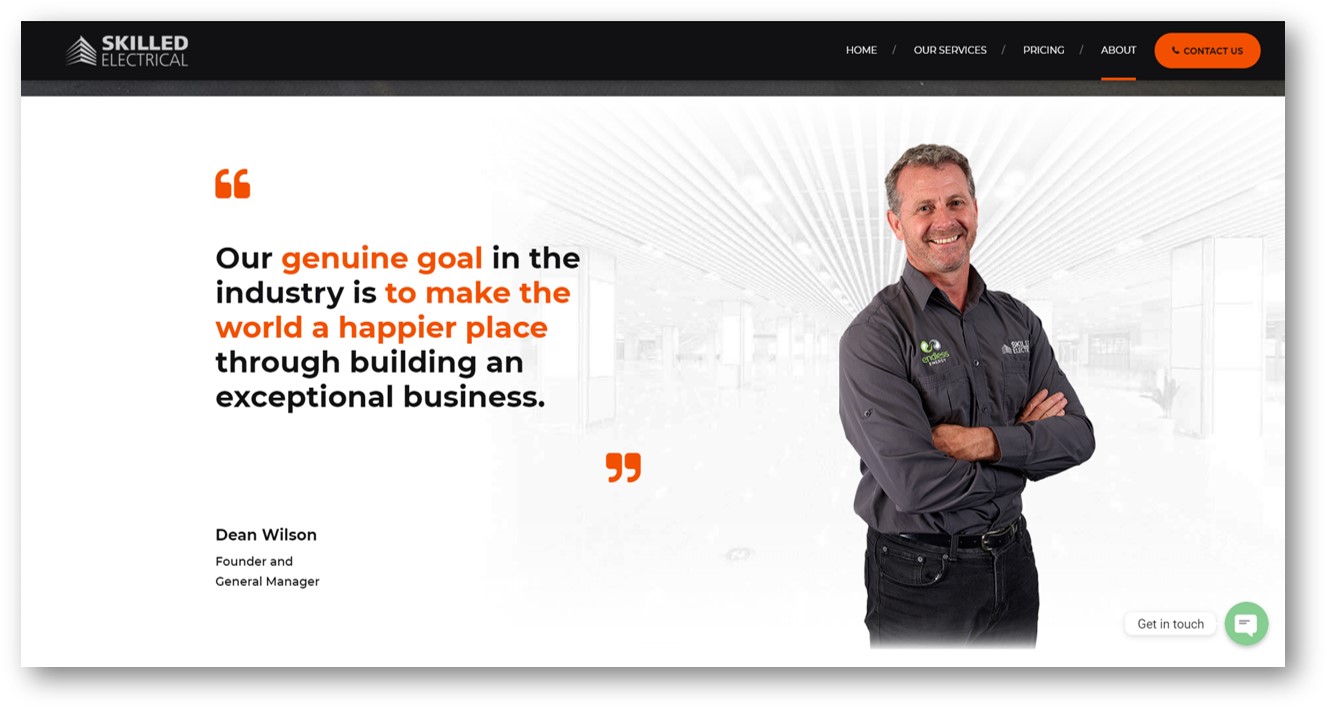When competition in the online space is so strong, how can you make sure Google increasingly show people your page in response to online searches?
There are many things that have worked over the years. But what works in 2021?
One things is for sure. Google likes content on your website that is helpful to your customers.
How can you use content on your website to improve your Google ranking? How can it bring you more customers?
Lets break that down.
Find our what questions your customers have
What are their burning questions? What will resonate with them?
If you write content that will teach, inform or inspire your customers in ways that they really appreciate, Google will notice.
In a blog on their website, Whitianga builders Urban Homes, talked about Outdoor living… the Urban way. It was informative and inspiring, and it genuinely meets a need that customers have.

The article included inspiring pictures and informative text. But it also featured All Black Sam Cane, and the house he built with Urban Homes, providing social proof from an inspiring Kiwi.
What impact does this have?
Google measure how much time people spend on your website. If they are engaged in your content because it resonates with them, they will stay longer. And, Google will notice.
Google knows, based on millions of searches, what your customers likely want to know. They also know how to measure a website to see if it is likely to give a good customer experience.
How will you know what is useful?
When you are with your customers, practice actively listening to them in order to really help them in that moment. But mentally keep a list of the kinds of questions that customers are asking.
No, you won’t want to give away your secret recipes and trade secrets. But you can write enough to let them know that you are the expert guide who can help them!
Use your content to build trust. More on that in a moment.
Google will give you a hint
When people use Google to search for something, Google will include the most popular questions that other searchers are asking.

These questions give you clues about the content you should write.
You can try slightly different searches, based on what you are hearing from your customers, to find out related questions. This allows you to write relevant content with greater depth.
Write useful, helpful, relevant information.
Google is concerned with E.A.T: Expert, Authoritative, trustworthy information.

Forbes.com describe these three terms this way:
Expertise: This element focuses on the context of the content providing an expert outlook. It looks at the expertise of the page of contents, not the website’s content as a whole. Though Google is unclear of the criteria, having an expert author or expert opinions within content will likely help you score high in expertise.
Authoritativeness: This element focuses on the authority of the website’s content and the strength of the domain. These rankings arrive from external signals such as qualitative links from other relevant websites and brand mentions across forums and social media channels.
Trustworthiness: This element is similar to expertise but focuses on the trustworthiness of the content in relation to the trustworthiness of the domain. For example, if you had poor and untrustful content across your sales consulting website but then landed a guest post by Jordan Belfort, author of Wolf of Wall Street, the article would appeal to the expertise element of E-A-T but not the trustworthiness of the website.
Use Your Own Photos to Add Impact and Relatability
Add pictures – your own pictures rather than stock photos – that add to the content in meaningful ways.
North Shore Electrician Jenco Electrical used their own photos in a blog about charging your EV while protecting your home and vehicle.

Using your own photos lends authenticity and relatability to the content that was being written.
Write with expertise, enthusiasm and keyword focus
I have already discussed the need to write content that is useful – that matches the questions that your customers already have.
But you must go beyond this if you want to rank well.

Its not enough to simply answer a question.
Expertise
You must do it in a way that demonstrates your expertise. The customer is the hero in this story – but you are their trusted guide, the one that helps them to avoid failure and enjoy success.
So demonstrate that you are providing expert, authoritative and trustworthy advice. Google will reward you.
Enthusiasm
But make sure that you have found the intersection between the customers question and your passion. You must be able to write with enthusiasm.
Trust me, your enthusiasm will shine through or not!
Don’t be too serious, cold, sterile. Add some warmth and enthusiasm to your writing and people will enjoy it and engage with it more.
Keywords
Finally, make sure that the question you are answering gives you an opportunity to add weight to the keywords you are trying to rank for.
For example, Virtual Print are an online printing service in Hamilton, NZ. They regularly write “inspiration” articles on their website.
In a recent post they describe 8 Critical Steps to Design the Perfect Product Label (Infographic).

As you can imagine, they want to get ranked by Google for the keyword “printing labels.”
Writing this article allowed them to answer a question that people have, with expertise and enthusiasm, but also in a way that allowed them to very naturally send clues to Google that they are experts in label printing.
Use Case Studies
Heat pump, air conditioning and refrigeration specialists in Timaru, Cool Air, use case studies to highlight their work.
In a recent case study they highlighted a beer fridge they installed at Liquorland in Timaru.

This gave them an opportunity to demonstrate their expertise with enthusiasm. But it also, very naturally, enabled them to address questions that potential clients are asking
- Are Cool Air good at what they do?
- What is the key to their success?
- Who at Cool Air should we have a relationship with?
- Are they reliable, trustworthy and effective?
Highlight Your Unique Value
Likewise, Christchurch electricians Skilled Electrical write a blog that allows them to demonstrate the unique value they have to offer their clients.

Skilled Electrical have created a sister company that specialises in solar energy. The content on their web page demonstrates E.A.T. and adds value to their customers.
Add Depth and Breadth to Your Content
Most websites contain information. But in doing so they don’t give Google many clues about how they can help people.
Length is not the issues here – depth is.
So writing 1,500 words is not necessarily better than writing 500 words.
Auckland drainlayer, Fox Drainage wrote a post on, 9 brilliant changes you can make to help Auckland stormwater. It is very informative and full is practical advise. It isn’t long but it does give Google plenty of clues about Fox’s website and what it is about.
In its content it sends Google the following clues:
- Fox Drainage operates in Auckland – so Google gets a geographical clue
- The title alone tells Google that Fox Drainage work with stormwater systems – a contextual clue
- It mentions rain water, drains and pipes to add depth to the stormwater clue – depth clues
- It uses headings and paragraphs to discuss pollution, driveways and drainage – breadth clues
Provide Practical Application Points
Its not enough to simply write a blog or tell a story.
Make it practical. Give the reader tips to help them in real ways.
Jenco Electrical write a blog last year on, how to reduce electricity costs in Auckland.
It was full of very real advice that the average consumer could follow to reduce their power bill. Fantastic.
Conclusion
There is so much more that can be said. Lets save some for another post.
But you can see that adding useful, helpful, and relevant information on your web pages, or in your blog, will help people in real ways. But it was also help Google to understand what your website is about. This way Google will understand which search queries your page will answer and rank your page for those questions.
Have fun!



